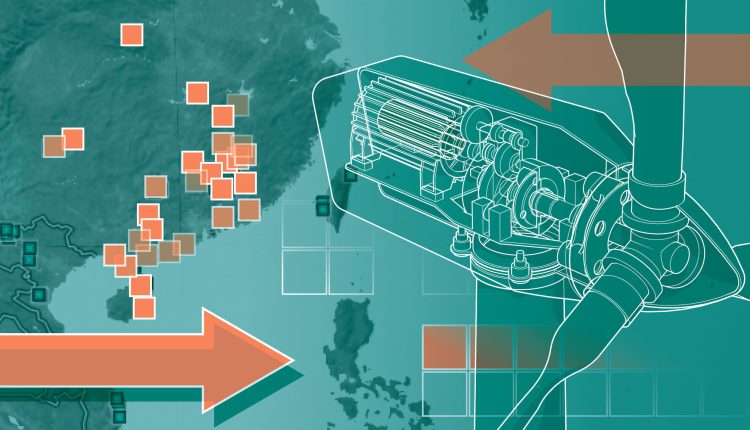“The Middle East has oil, China has rare earths,” declared then-Chinese leader Deng Xiaoping in 1987 while touring Baotou, Inner Mongolia, the site of one of China’s largest rare earth deposits.
Although rare earths are found across the world, no country has exploited them like China. Beijing recognised the strategic importance of these resources more than three decades ago and has built a dominant position in the production of global rare earth oxides — the raw, mined product from which rare earth elements can be separated.
Others are trying to catch up. Non-Chinese production of rare earth oxides increased nearly four-fold to 90,000 tonnes from 2015 to 2022, according to US data.
But China has not stood still. Production of rare earths has doubled from 105,000 tonnes to 210,000 tonnes in 2022, far outstripping the increase outside of its borders in absolute terms.
Mining is only the first step. Rare earth elements must be separated from the oxides, refined and forged into alloys in a complex, highly specialised, multi-stage process, before they can be turned into magnets.
Here, too, there is a lot of ground for relative newcomers like Europe to make up. China has established a controlling position at each step of this process, through a concerted, long-term industrial strategy, backed by state subsidies.
“In the short term, China will still be the major player,” says Edoardo Righetti, a researcher at Brussels-based think tank CEPS. “You can’t break the competitive advantage they built over the last 30 years in the space of five years.”
EU officials fear that a move by Brussels last week to launch an anti-subsidy probe into Chinese electric vehicles could provoke retaliatory trade measures on other key materials.
China is already attempting to cement its position with protectionist controls on imports and exports of rare earths and processed materials. Beijing is also considering a ban on intellectual property exports for magnet-making technology.
China is so dominant in rare earths mining, processing and magnet manufacturing that Amanda Lacaze, managing director of Lynas, the world’s largest non-Chinese rare earths miner, says that “until we get a critical mass operating outside of China, China will retain that ability to pull the strings on the market.”
Technologies key to the transition
Demand for rare earths is rising because of their importance in the production of permanent magnets, a crucial component in advanced technologies key to sustainable growth, from wind turbines to electric cars and scooters.
Electric cars without permanent magnets require bigger batteries; wind turbines without them require more maintenance out at sea, making the little-known elements crucial to the shift away from fossil fuels.
They are also vital for weapons systems such as fighter jets. The US Department of Defense is playing a key role in Washington’s effort to diversify sources of supply.
The global market for rare earths is set to amount to just $9bn in 2023, but is forecast to more than double in 10 years to $21bn, according to Project Blue, a critical metals consultancy. The European Raw Materials Alliance (ERMA) expects the EU’s mobility and automotive industries — in which permanent magnets will play an important role — to grow to €400bn by 2030.
But current European production is negligible at both the mining and processing level. “There are no significant demonstrated European reserves, [there is no] recycling technology available or being implemented, and there’s almost no processing technology downstream except for in China. They are a symbol of all the issues Europe has in critical raw materials,” says Ton Bastein, a scientist at TNO, a research institute in the Netherlands.
Even in areas of technology where Europe has become a world leader, such as the production of wind turbines, it still depends on crucial components from China. It is a similar story for EVs and other innovations that are set to power a greener future.
Read the full article here

